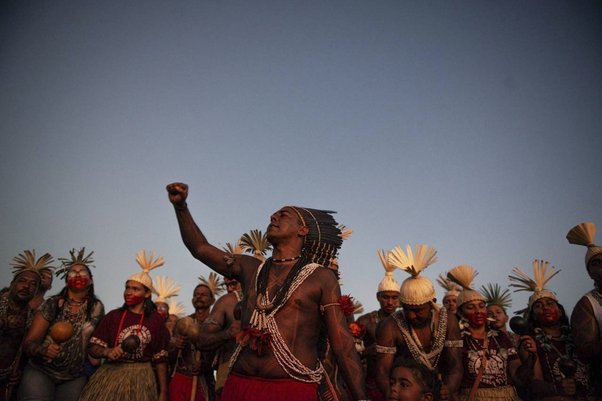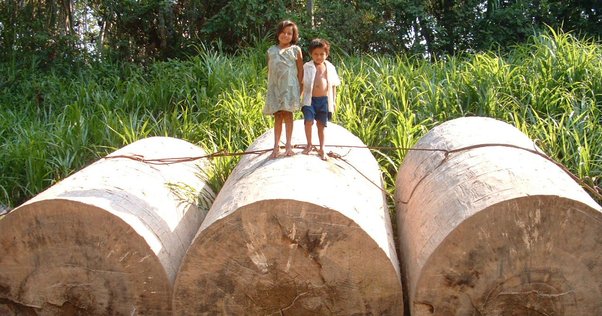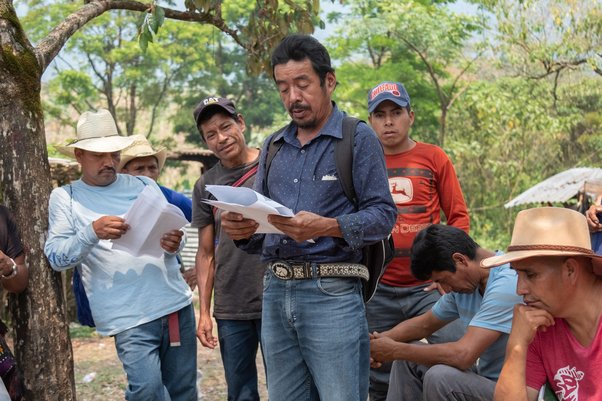In 2018, a series of protests against the Nicaraguan government’s response to fires in Indio Maíz biological reserve – one of Central America’s most important tropical rainforests – sparked the biggest political, social and economic crisis the country has seen in recent years.
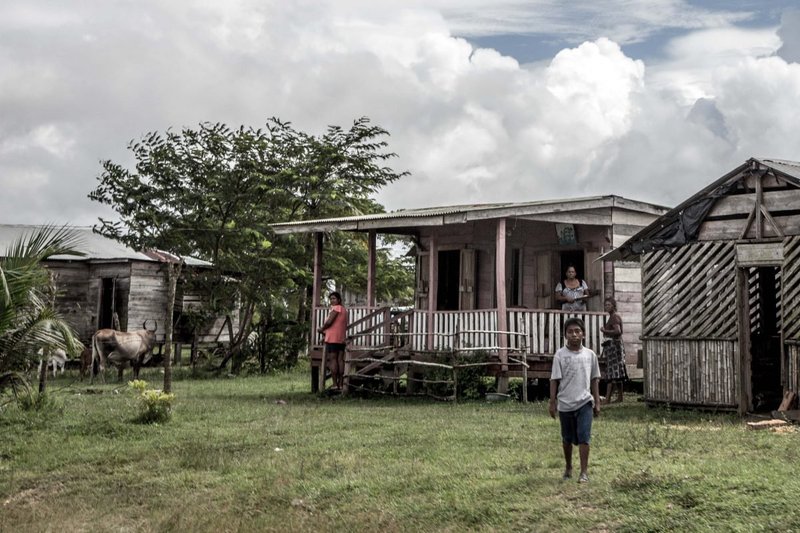
The government of Daniel Ortega and his wife Rosario Murillo ignored the many calls national and international organisations made to address these fires, which led to important forest and biodiversity loss. It also severely threatened the ancestral territories of the Rama Indigenous communities and the Kriol afro-descendant communities. Ortega is still in power today. So is the crisis.
Human rights violations in Nicaragua have been rife over this period, including 355 documented murders of civilians, as well as a multiplicity of attacks ranging from torture to criminalisation, from harassment to death threats. Those who have worked to defend democracy, fundamental rights and the preservation of Indigenous territories have also been the subject of hate speech. Since 2018, when the protests started, 169 people have been jailed, according to the Political Prisoner Recognition Mechanism managed by Nicaraguan civil society.
In the most recent escalation of State repression, on March 16th 2022 the legislature passed a resolution that enabled the closing down of over 30 civil society organisations. These entities had been working to make up for the state’s failure to protect and provide basic services to the Nicaraguan people. And this is just the latest instalment in a growing trend: this new development has brought the total list of organisations that have been declared illegal up to 132.
One of the organisations closed down is CEJUDHCAN (Centro por la Justicia y los Derechos Humanos de la Costa Atlántica Norte), which has a long history of working to defend the rights of Miskitu Indigenous peoples.
This new decision to make CEJUDHCAN and other organisations illegal sets a very dangerous precedent and leaves those Indigenous peoples they are supporting in a state of extreme vulnerability as they try to fend off external settlers’ constant encroachment of their lands.
Global Witness’s report Defending Tomorrow exposed Nicaragua as the country with the highest per capita killings of land and environmental defenders in the world.
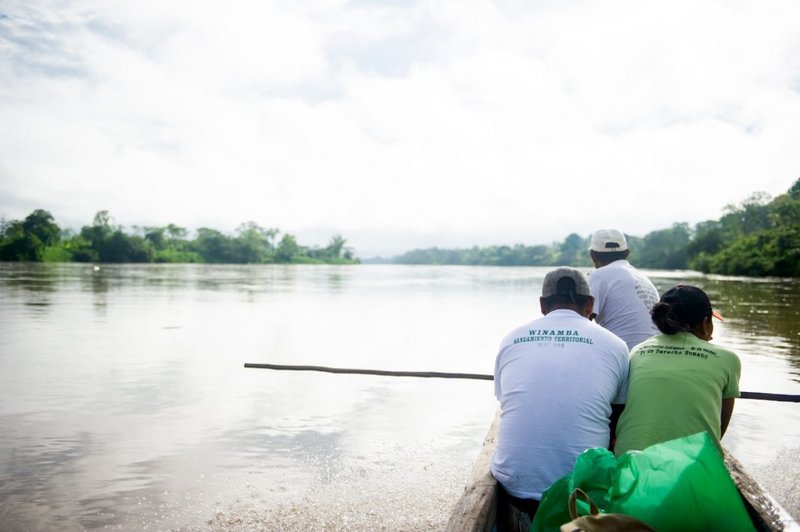
Between 2018 and October 2019, CEJUDHCAN has documented 41 direct attacks against members of the organisation whilst doing their work standing up for the Indigenous communities. Center for Justice and International Law / Beth LaBerge
Defenceless in Indigenous territories
The Center for Justice and International Law (CEJIL), which represents Miskitu Indigenous peoples before the Interamerican Court of Human Rights, has denounced the closure of the NGO, issuing the following statement:
“CEJUDHCAN has been instrumental in drawing attention to the looting of lands that Miskitu and Mayangnna Indigenous peoples on the Caribbean coast have suffered; it has also shed light on the way the Nicaraguan authorities have done nothing to stop looting from happening. CEJUDHCAN has documented how this has a specific impact on these communities, including forced displacements, generalised hunger, and the loss of ancestral practices. By taking away CEJUDHCAN’s right to exist as a legal entity, the Nicaraguan state seriously undermines the rights of Indigenous peoples, who have been historically marginalised. It denies them the protection and backing that the authorities themselves have failed to provide”.
Indigenous peoples have historically been more vulnerable to attacks perpetrated by governments and other stakeholders. According to CEJUDHCAN, the attacks have escalated since the political and human rights crisis erupted in 2018.
In the particular case of Miskitu and Mayagna Indigenous peoples, the Inter-American Commission of Human Rights stated in a resolution to grant precautionary measures on February 15th, 2022 that, between April 2018 and January 2021, 17 individuals have been killed, 31 have been injured (including beating and sexual violence) and 10 have been disappeared. In addition, 53 families have been forcefully displaced and 37 properties have been burnt or destroyed.
Furthermore, between 2018 and October 2019, CEJUDHCAN has documented 41 direct attacks against members of the organisation whilst doing their work standing up for the Indigenous communities.
In this context, forests in Nicaragua are being destroyed at an alarming rate. Centro Humboldt, an environmental NGO, found that 1.4 million hectares of forest were lost between 2011 and 2018. The organisation has now also seen its legal status and right to exist revoked.
This dire situation makes accessing and publishing information even more important, particularly in the face of the aggressive expansion of extractive industries. The lack of urgent action could result in irreversible damage.
The international community needs to take urgent action
Global Witness stands in solidarity with CEJUDHCAN and with all the Nicaraguan civil society organisations working at the frontline of the defence of human rights that are being unduly criminalised.
On March 23rd, Nicaragua’s Representative to the Permanent Council of the Organisation of American States denounced the deterioration of Nicaraguan institutions and the dark future for democracy in the country. “Since 2018, Nicaragua has become the only country in Central America where there aren’t any printed media. There’s no freedom to publish even a simple tweet on social media, there aren’t any human rights organs or civil society organisations. They have all been either closed, expelled, or shut down. Inside the Nicaraguan government, nobody listens and, way worse, nobody speaks. I’ve tried so many times, but all the doors are closed now. This situation is beyond my diplomatic capacities,” said Arturo McFields Yescas in a public conference.
We reiterate the call from Nicaraguan civil society for the urgent establishment of a UN special mechanism for Nicaragua that demands state accountability for all human rights and environmental violations that have taken place since Ortega’s government has tirelessly shrunk civic space.
Such a mechanism should include a specific focus on incidents against Indigenous people resisting threats to their ancestral territories, as the lack of national civil society organisations operating in the territory leave them at the risk of further attacks that undermine their rights, livelihoods, and culture.
Recognising the crucial work civil society and Indigenous peoples do to protect their land, resources, and environment from illegal invasions is critical. For those on the frontline, time is quickly running out.
